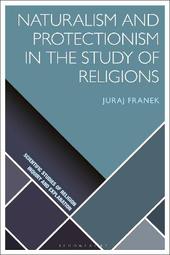
|
Naturalism and Protectionism in the Study of Religions
Hardback
Main Details
Description
How should we study religion? Must we be religious ourselves to truly understand it? Do we study religion to advance our knowledge, or should the study of religions help to reintroduce the sacred into our increasingly secularized world? Juraj Franek argues that the study of religion has long been split into two competing paradigms: reductive (naturalist) and non-reductive (protectionist). While the naturalistic approach seems to run the risk of explaining religious phenomena away, the protectionist approach appears to risk falling short of the methodological standards of modern science. Franek uses primary source material from Greek and Latin sources to show that both competing paradigms are traceable to Presocratic philosophy and early Christian literature. He presents the idea that naturalists are distant heirs, not only of the French Enlightenment, but also of the Ionian one. Likewise, he argues that protectionists owe much of their arguments and strategies, not only to Luther and the Reformation, but to the earliest Christian literature. This book analyses the conflict between reductive and non-reductive approach in the modern study of religions, and positions the Cognitive Science of Religion against a background of previous theories - ancient and modern - to demonstrate its importance for the revindication of the naturalist paradigm.
Author Biography
Juraj Franek is Assistant Professor at the Department of Classical Studies, Masaryk University and Research Fellow at the Centre for Classical Studies at the Institute of Philosophy, Czech Academy of Sciences,The Czech Republic.
ReviewsJuraj Franek argues that the contemporary cognitive approach to religion marks a revival of naturalism and offers hope for the defeat of protectionism. An excellent contribution. * Robert Segal, Sixth Century Chair in Religious Studies, University of Aberdeen, UK * The chasm between protectionism (viz. phenomenological or sun generis approaches) and naturalism (viz. social scientific approaches) is surprisingly still very much alive. Juraj Franek offers both a historical account of that dissent as well as suggestions for an academically sober study of religion. * Nickolas P. Roubekas, Assistant Professor of Religious Studies, University of Vienna, Austria *
|